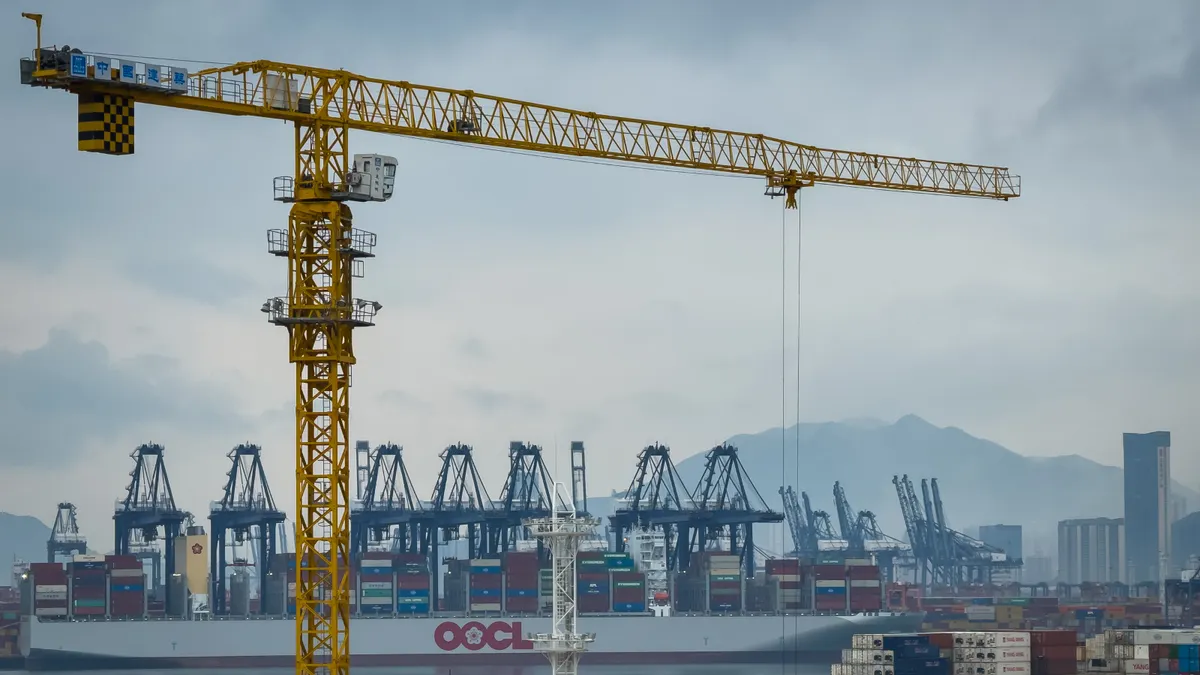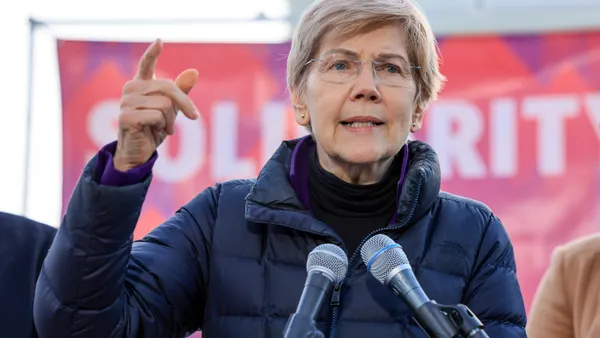U.S.-led global trade disruption is turbulent in the near-term but represents a long-term tailwind for cross-border payments specialist Payoneer Global as companies adjust and find new trading partners, the company’s chief executive contended in an interview this month.
President Donald Trump in April introduced a new 125% U.S. tariff on a broad range of goods imported from China, atop a prior 20% duty. That resulted in Chinese leaders imposing a reciprocal tax for U.S. goods. The countries later announced a 90-day pause on the duties, pending negotiations. The bulk of the U.S. tariffs on Chinese goods are delayed until Aug. 12, according to a Trump tariff tracker by law firm Reed Smith LLP, pending talks between the countries.
The same month Trump launched his trade war, Payoneer became licensed by China to provide online payment services in China, with its acquisition of Easylink Payment Co.
“The reordering, reshaping, reimagining of global trade plays to Payoneer’s strengths,” Payoneer CEO John Caplan said in a June 13 interview, arguing that entrepreneurs operating small and medium-sized businesses adapt rapidly to U.S. trade policy.
As a result, he said, exporters’ quest to find new markets fuels Payoneer’s accounts payable and receivables business. The nearer-term, however, carries “an air pocket of disruption,” Caplan added.
The trade turmoil prompted New York-based Payoneer to withdraw its full-year financial guidance on May 7 citing the “macroeconomic uncertainty” unleashed by Trump’s trade war.
“There are entrepreneurs around the globe who are reacting to shifts of policy, and they are incredibly resilient about finding pools of opportunity for their businesses,” Caplan said. “People in the West are sourcing goods where they need to find them, and people in the East are diversifying where they sell and where they manufacture. Both of those dynamics end up benefiting Payoneer,” he said.
The cross-border payments specialist has 20% of its revenue – about $200 million – tied to China-based companies that sell into the U.S., William Blair analysts Christopher Kennedy and Marc Feldman wrote in a June 5 client note. Another 15% of Payoneer revenue is from China-based firms that sell to countries outside the U.S. Overall, 40% of Payoneer’s revenue involves business that “never touches the United States,” Caplan said.
About $50 million of Payoneer’s revenue could be affected by tariff-related trade disruptions in the second half of this year, the William Blair analysts said, citing the company.
Payoneer says it has two million active customers across 190 countries and that it held about $7 billion in customer funds on which it pays no interest, as of the first quarter this year, according to its quarterly earnings presentation. The company turned profitable last year, and has told investors to expect longer-term earnings margins of at least 25% beyond 2026.
Under Caplan, who became CEO in March 2023, Payoneer has sought to move upmarket and do business with larger companies that bring more volume. Still, its focus remains on small and mid-sized businesses, many of them in emerging markets, and how to simplify cross-border payments for companies that may be too small for large financial institutions to service effectively, Caplan said.
“Our business is just about as diversified as you could get,” he said, referencing its breadth across the globe.
Shares of the company have declined 35% this year, owing to investor fears over its exposure to customers with businesses that export goods from or into China. The trade turmoil is “a short-term headwind but an extraordinary long-term tailwind for our firm,” Caplan said at the conference.














